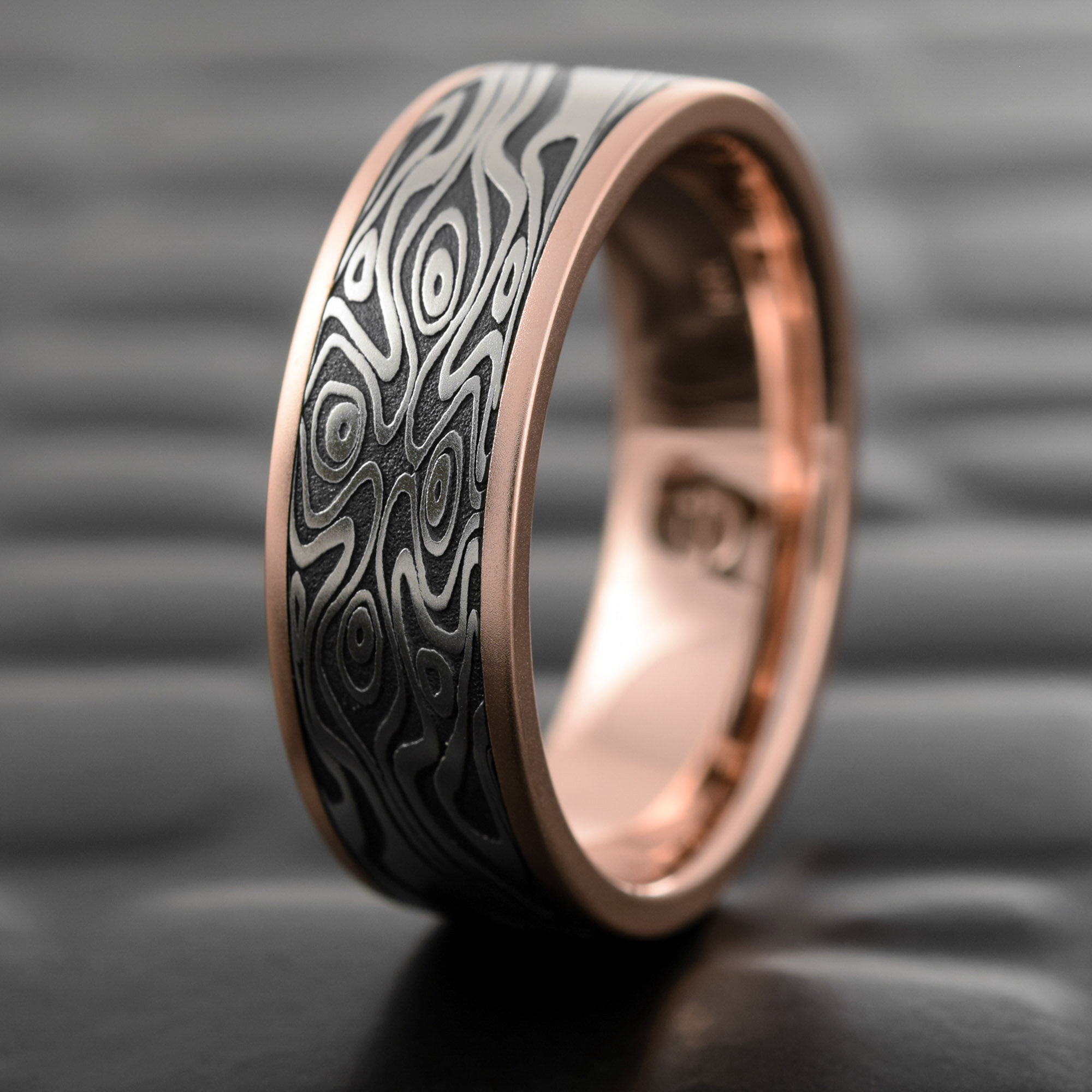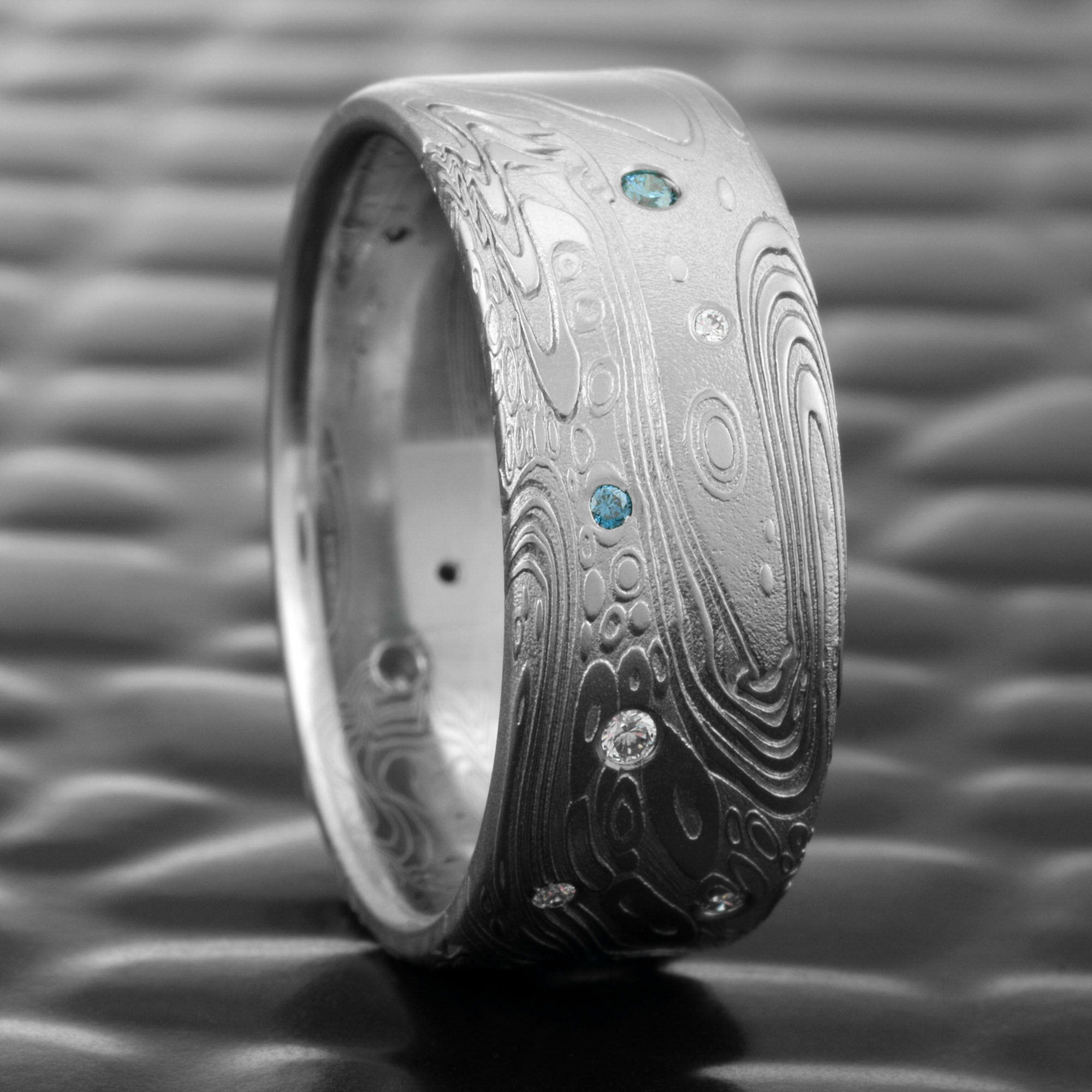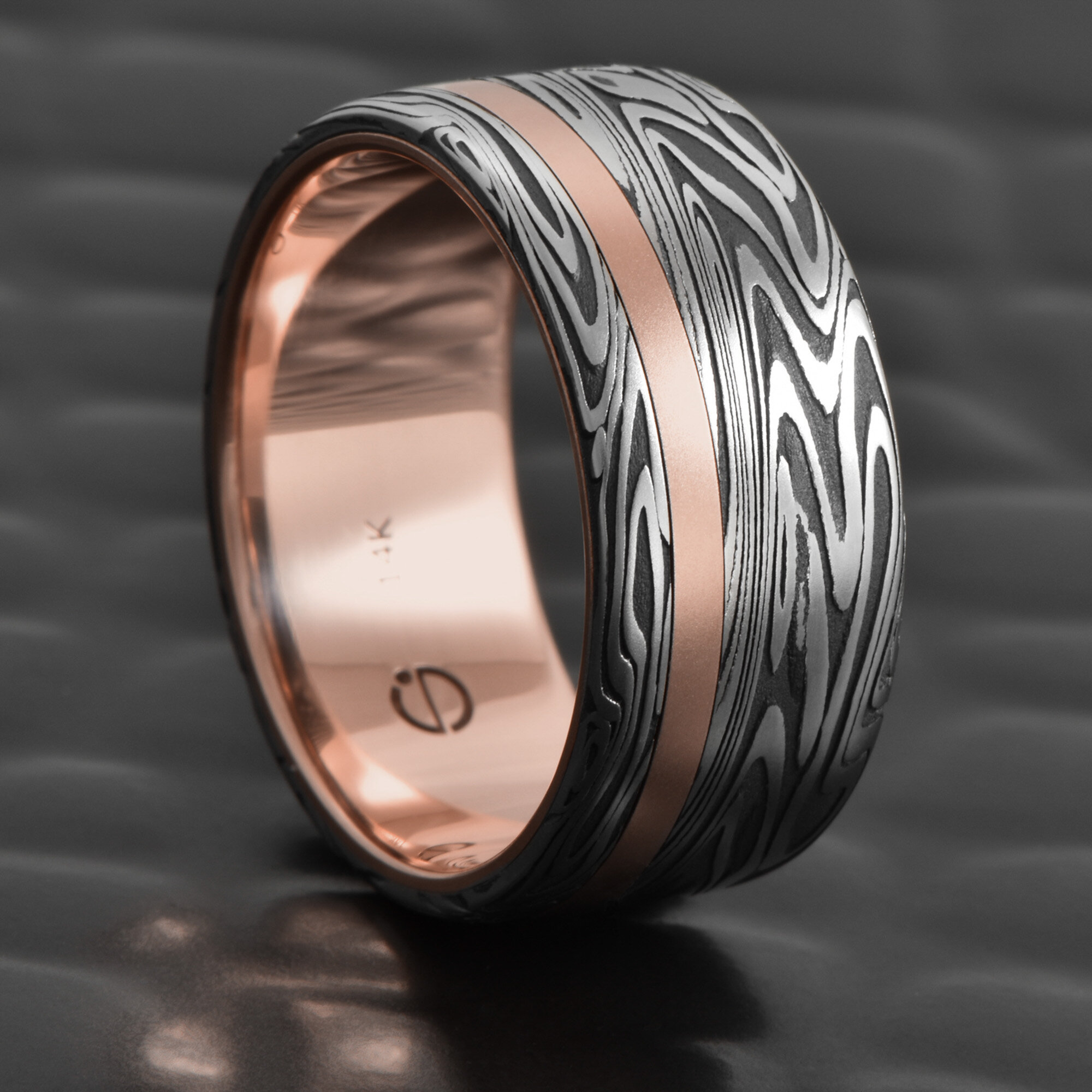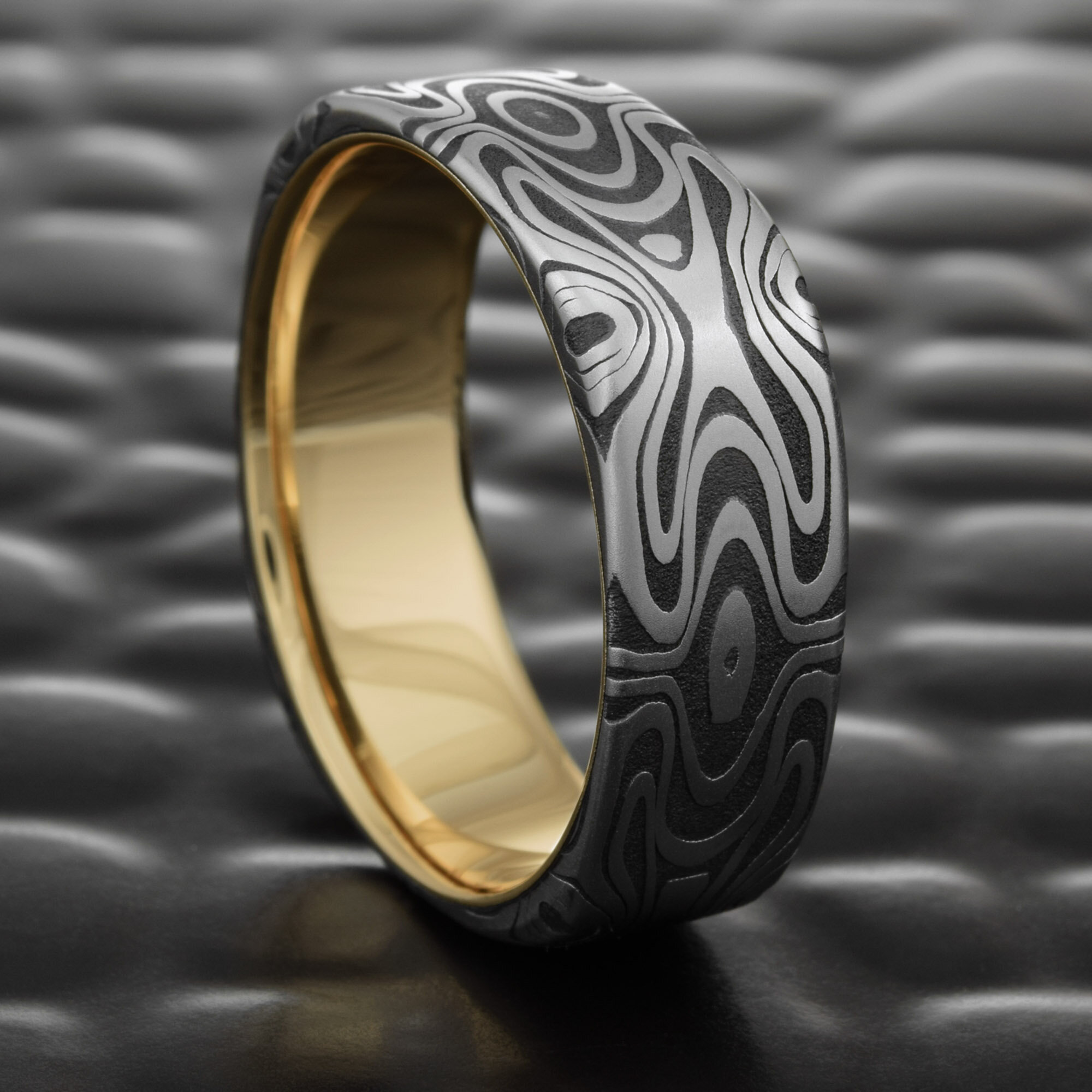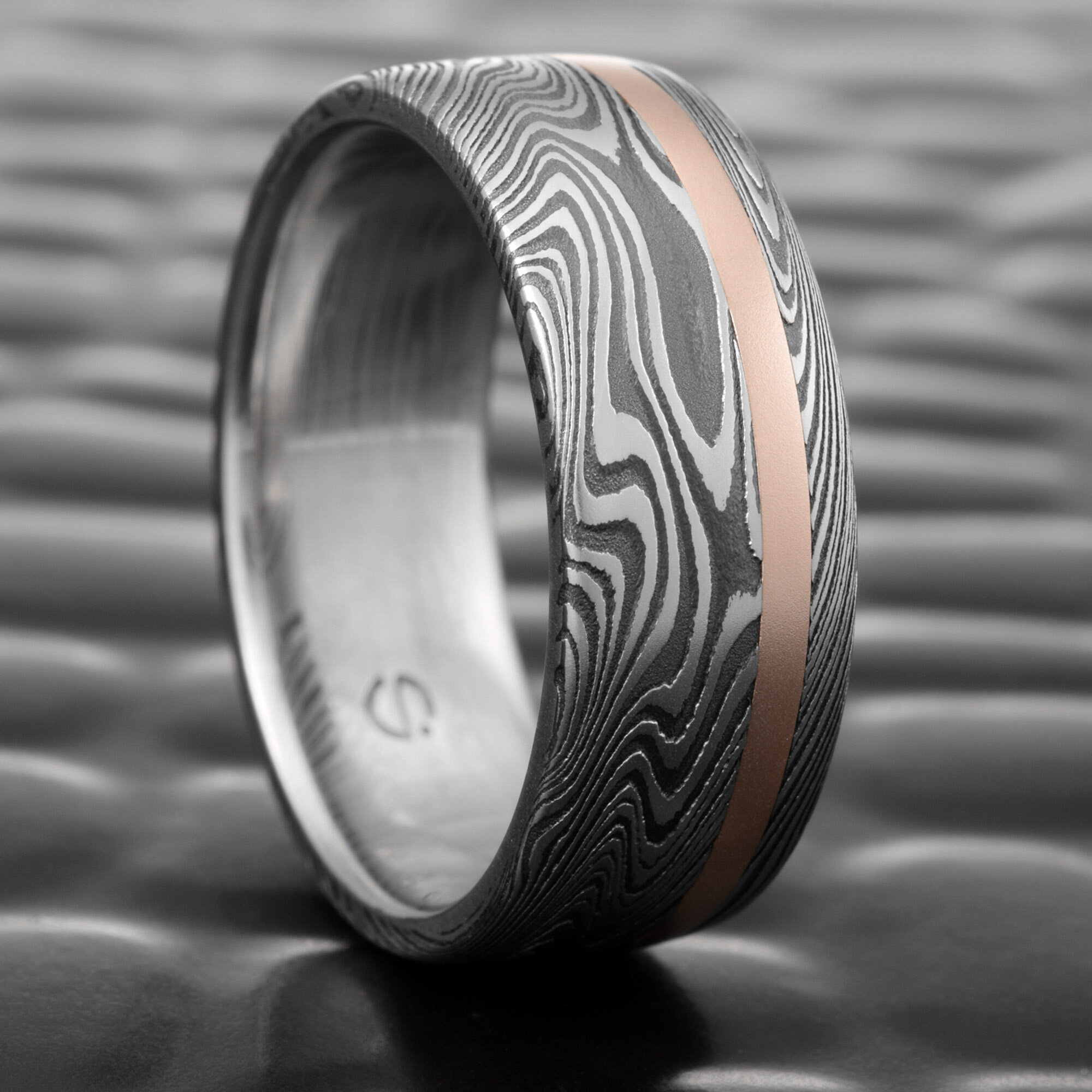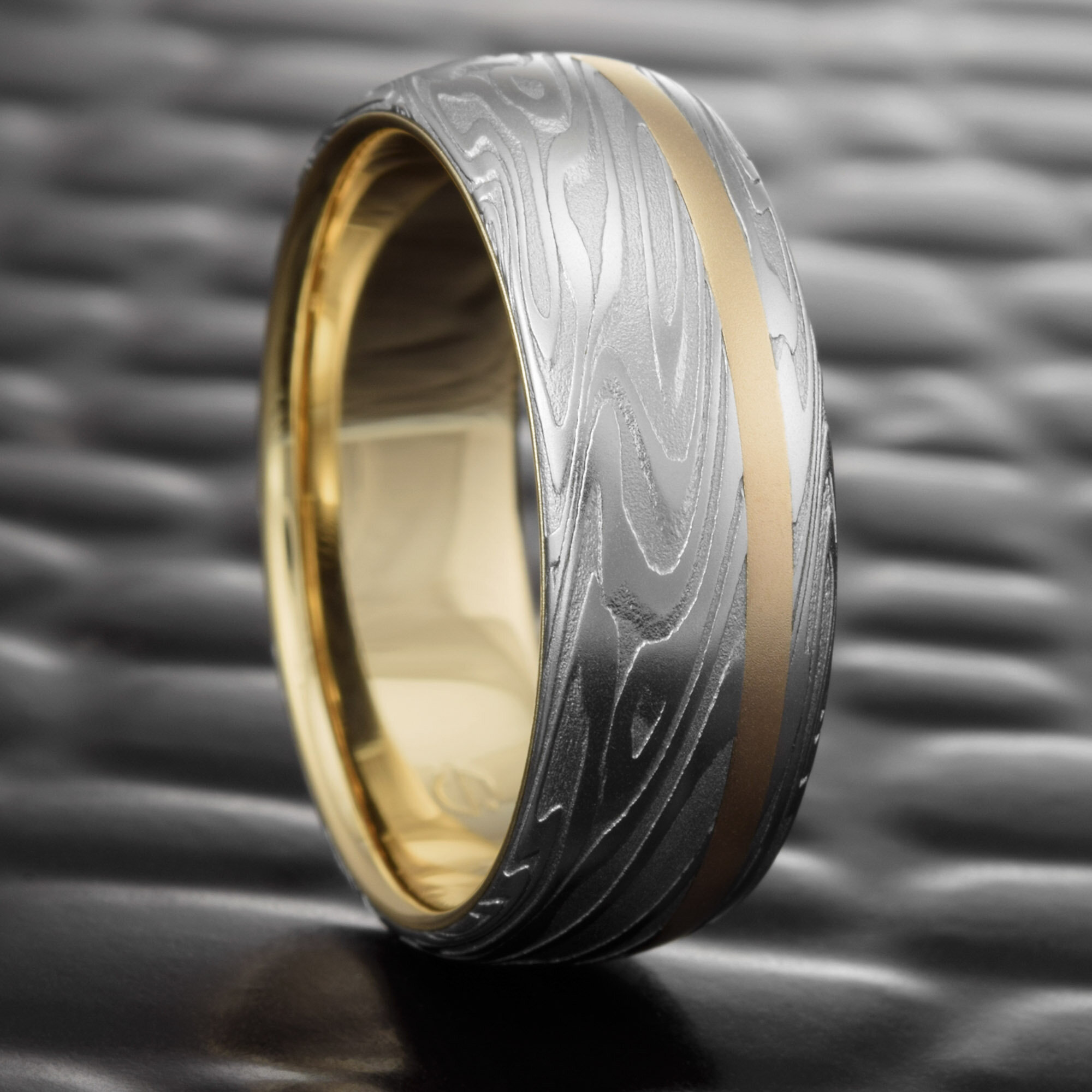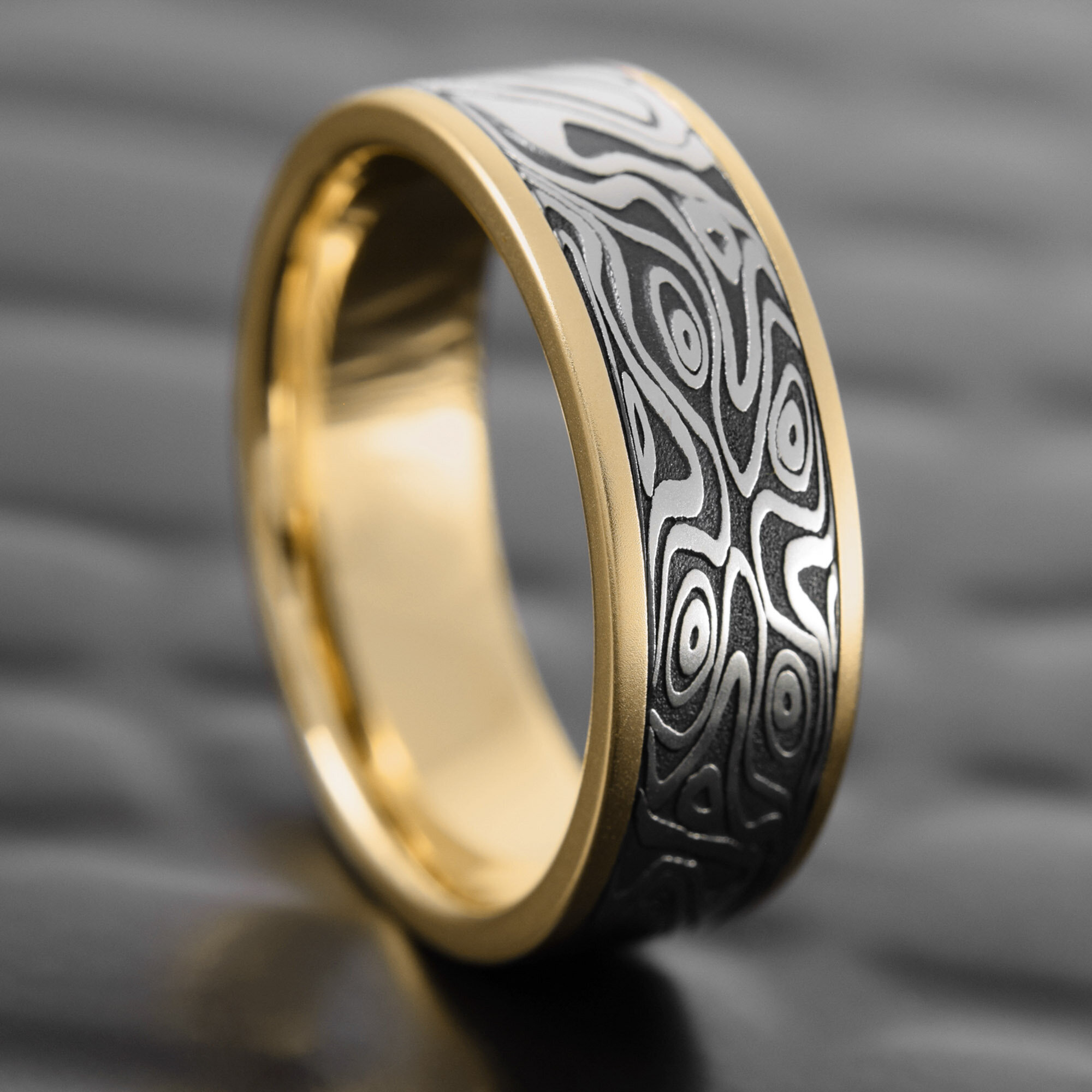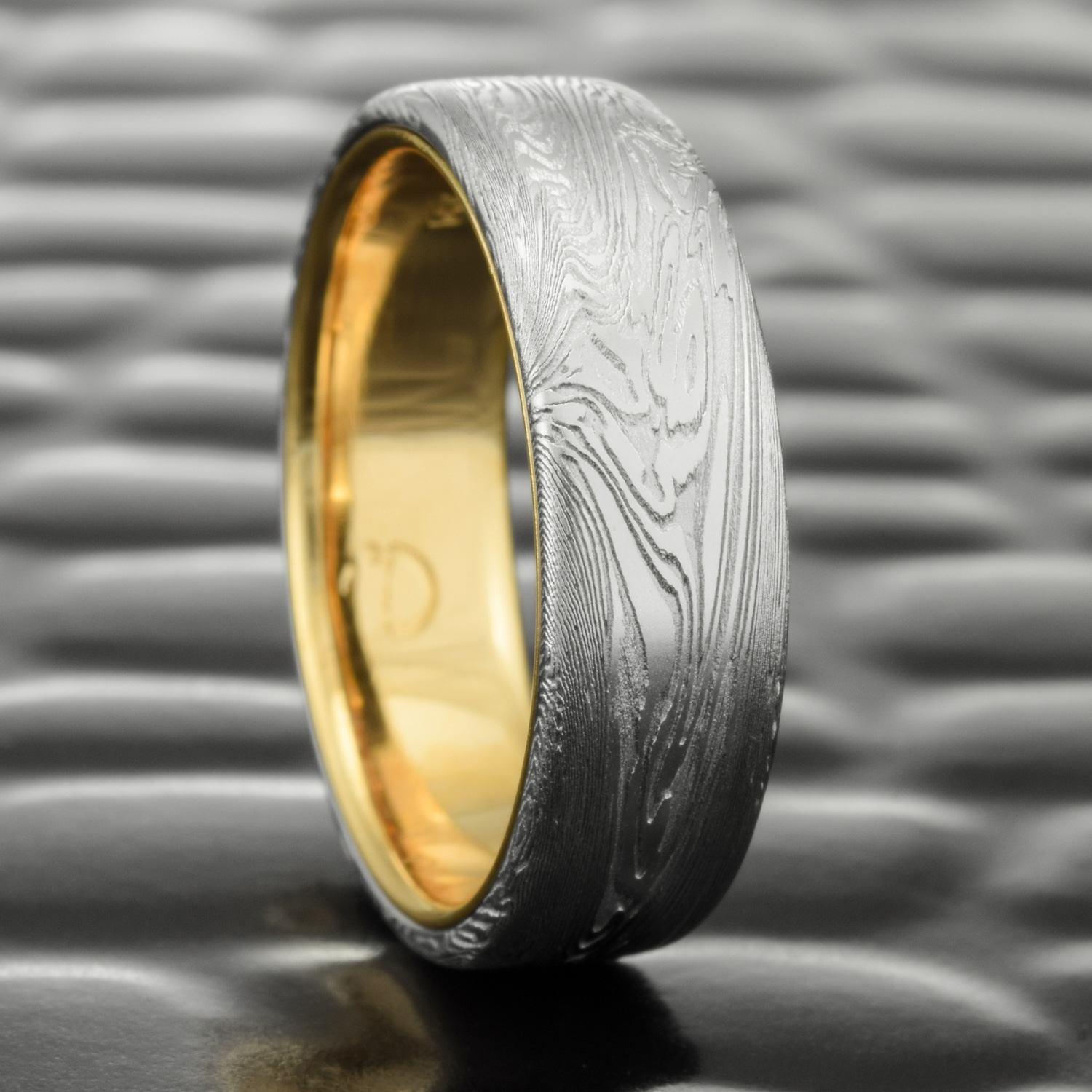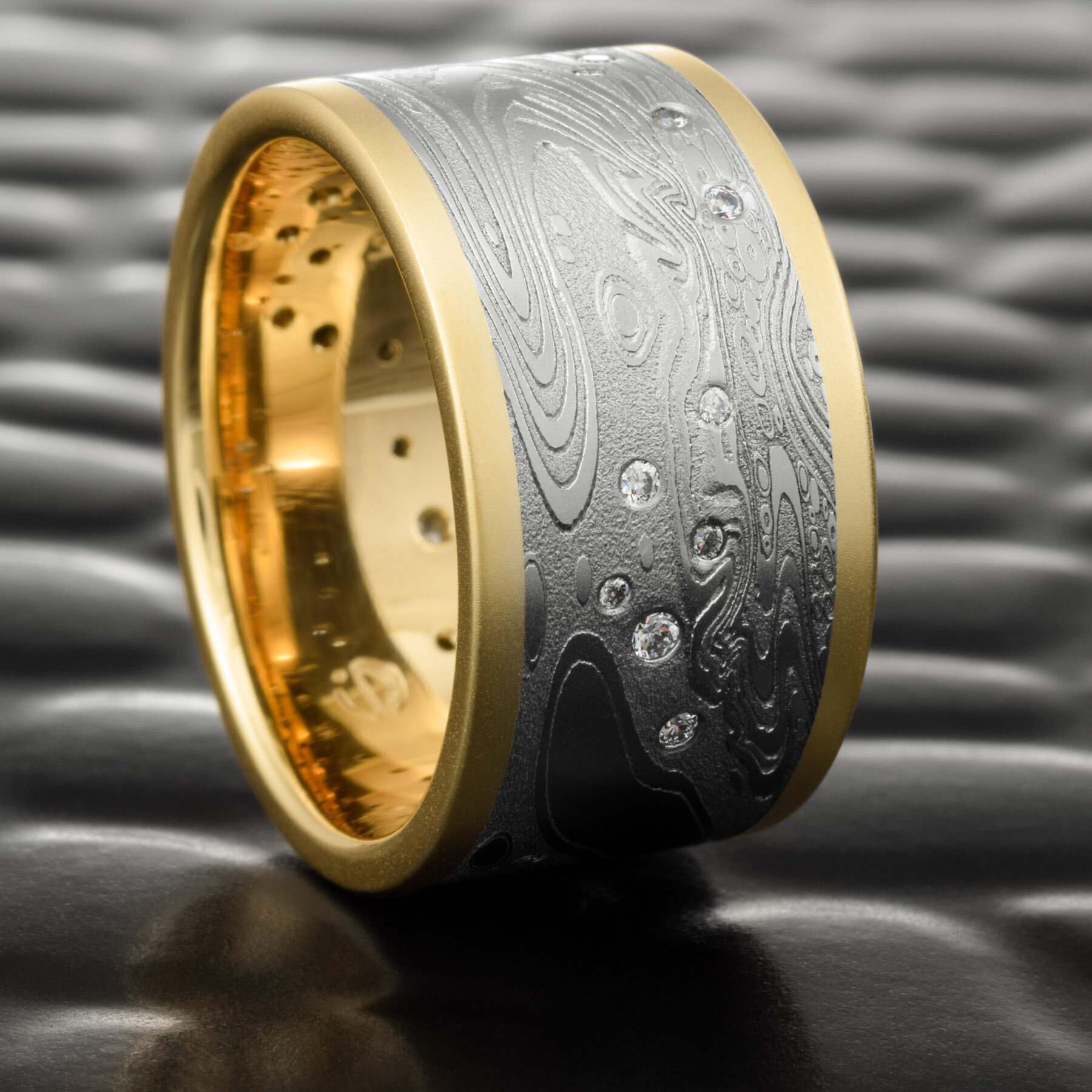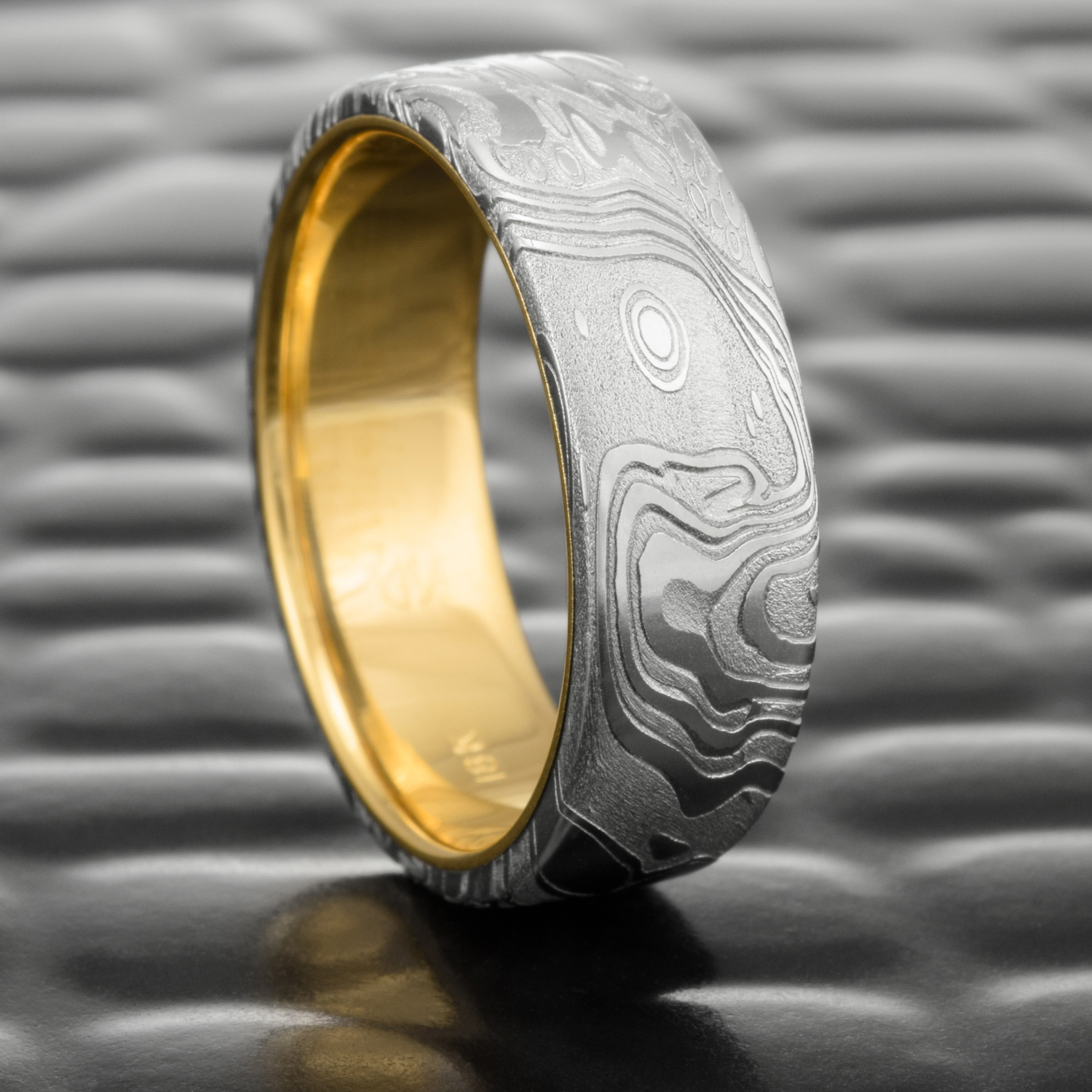Getting Dirty with Damascus Steel Rings
GUIDING YOUR DAMASCUS WEDDING RING EVERY STEP OF THE WAY
Damascus Steel and Mokume Rings are beautiful, but to make them, you have to be willing to get dirty!
The final FedEx pickup of the day is in front of the Courthouse in my little mountain town of Franklin NC at 5:15PM. That means for an hour or so prior to that, you can find me preparing shipment for our newly finished Damascus Steel wedding bands or Mokume Gane rings. It’s the most hectic part of my day, but once complete, I will have a couple hours to focus on forging or other work before it’s time to head home.
The rings, about to leave my shop for good, have now finished the long and intense journey from raw metal to finished ring. The production process has repeatedly heated and quenched, forged and twisted, shaped and polished, acid etched and wire brushed each ring with a final finishing touch provided by a bead blaster. Some have even spent time in a red hot molten salt bath to get a controlled oxidation treatment while others have received a gold inlay or a precious metal liner. But by 4:00PM, the finished rings of the day are gently suspended in the ultrasonic cleaning tank while I start creating shipping labels and writing thank you cards.
On a day that all goes as planned, that’s the way it happens at Steven Jacob’s North Carolina studio, which is to say, the way it happens maybe two days a week. The other days a ring may need some last minute etching or cleaning, a neighbor might drop in to chat, a machine could break down and need fixing or a million other unexpected things may hijack my time. That’s life, right? Everybody experiences this in their own personal life, and the life of a small business is just the same. So very often, I find myself taking product photographs, putting beautiful handmade wedding rings in ring boxes and printing shipping labels uncomfortably close to the time I need to dash out of the door on my way to catch the FedEx driver at the Courthouse.
Steve at his shop with typically dirty hands.
The very last step of preparing a ring for shipment, after the package is sealed, is to tape the seams of the FedEx Sturdy Pak or Box with some clear packing tape. I pull it off the roll and slap it on the package with the speed of an Amazon shipping robot only to discover a dirty fingerprint or two looking at me from the sticky side of the tape. Now, if you’ve ever seen a working jewelers fingers, you know they are often covered with leftover polishing compound, or sandpaper dust. A BLACKsmith’s hands are even worse with the likes of coal dust, metal oxide, forging graphite etc., so one way or another, my hands (even though I’ve washed them 15 times already that day) still show the evidence of my profession.
Authentically made rings with the fingerprints to prove it!
These smudges used to bother me, until I considered what they represent. How many products do we buy these days that are designed, manufactured, invoiced and shipped by the same hands? What is the level of artistry and care that a factory ring receives from the many hands it passes thru in a production line? The answers, of course, are obvious, but the implications are far reaching. As a metal craftsman who has worked for decades making Mokume Gane rings and Damascus Steel wedding bands, I can tell you that there are subtle and nuanced judgments that need to be made throughout the making process that affect the look, durability and comfort of a fine wedding band. A ring made in a factory will never get the fluid and informed attention a true craftsmen can give in real time. I think this is one of the traits that makes an authentically handmade ring so appealing and one that sets Steven Jacob’s rings apart from most others. So when your custom wedding band that you have patiently waited for weeks to receive finally arrives, look for the maker’s personal mark under the tape securing your package – a dirty fingerprint, just another sign of our commitment to authenticity and quality, at no extra charge.



